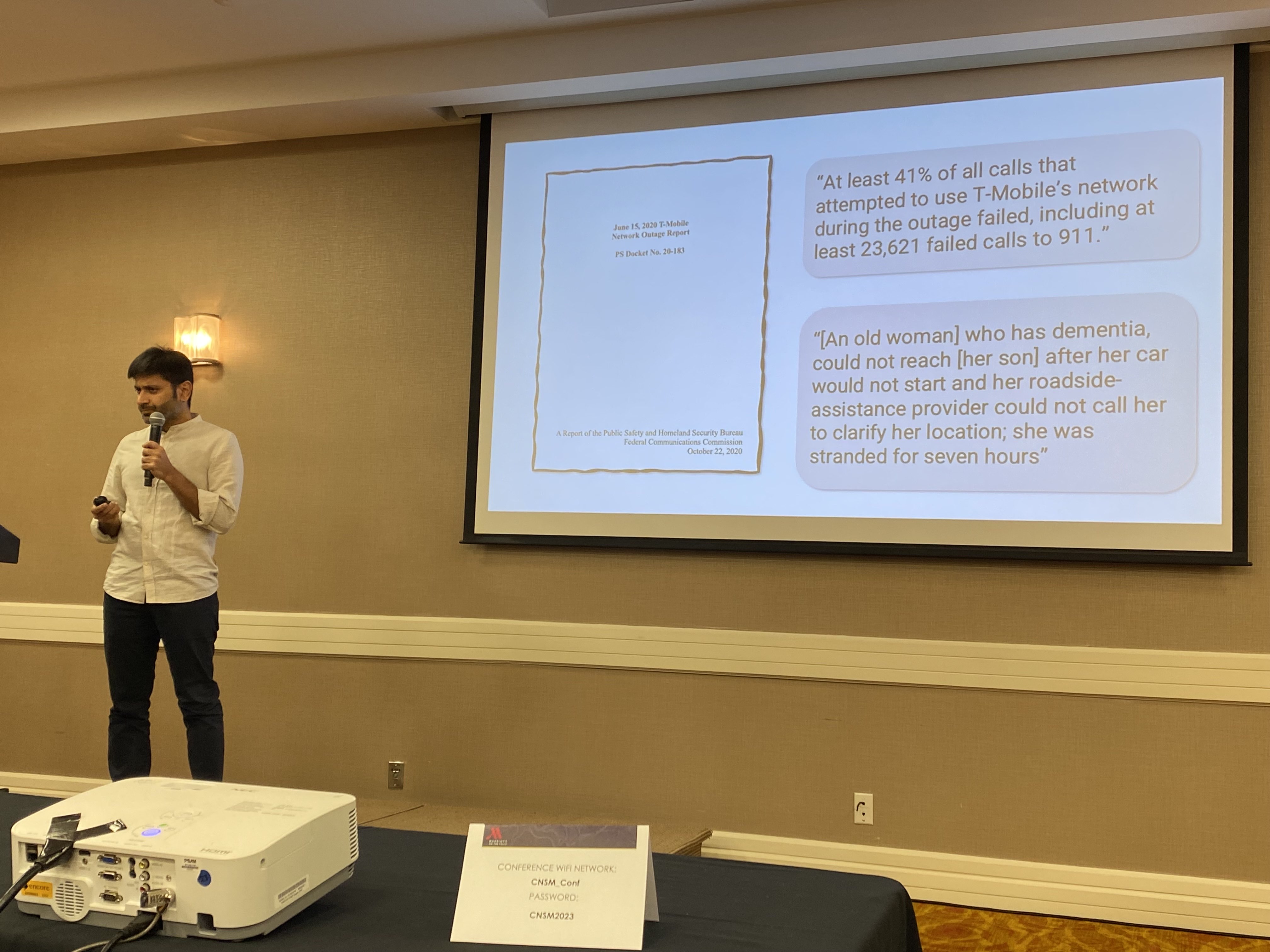From research to product: Lessons from developing a network verification tool

Batfish is a tool to analyze network configurations that is in use at many large enterprises. This talk describes its journey from a research prototype to an industrial-strength product, guided by scalability, fidelity, and usability challenges encountered when analyzing complex, real-world networks. I will share key lessons from this evolution, including how Datalog-based logic programming had significant limitations when generating and analyzing forwarding state and how binary decision diagrams (BDDs) proved highly versatile. I also describe new techniques for addressing real-world challenges, which increase Batfish performance by three orders of magnitude and enable high-fidelity analysis of networks with thousands of nodes within minutes. I end with observations on key blockers (and ongoing work) on broader use of network verification, including the lack of automation inside most networks and lack of feedback on test quality.
Date and Time
Location
Hosts
Registration
-
 Add Event to Calendar
Add Event to Calendar
Speakers
 Ratul Mahajan of University of Washington, USA
Ratul Mahajan of University of Washington, USA
From research to product: Lessons from developing a network verification tool
Batfish is a tool to analyze network configurations that is in use at many large enterprises. This talk describes its journey from a research prototype to an industrial-strength product, guided by scalability, fidelity, and usability challenges encountered when analyzing complex, real-world networks. I will share key lessons from this evolution, including how Datalog-based logic programming had significant limitations when generating and analyzing forwarding state and how binary decision diagrams (BDDs) proved highly versatile. I also describe new techniques for addressing real-world challenges, which increase Batfish performance by three orders of magnitude and enable high-fidelity analysis of networks with thousands of nodes within minutes. I end with observations on key blockers (and ongoing work) on broader use of network verification, including the lack of automation inside most networks and lack of feedback on test quality.
Biography:
Ratul Mahajan is an Associate Professor at the University of Washington (Paul G. Allen School of Computer Science). He is also the co-director of UW FOCI (Future of Cloud Infrastructure) and an Amazon Scholar. Prior to that, he was a Co-founder and CEO of Intentionet, a company that pioneered intent-based networking and network verification, and a Principal Researcher at Microsoft Research. He got his PhD at the University of Washington and B.Tech at Indian Institute of Technology, Delhi, both in Computer Science and Engineering.
Ratul is a computer systems researcher with a networking focus and has worked on a broad set of topics, including network verification, connected homes, network programming, optical networks, Internet routing and measurements, and mobile systems. He has published over fifty papers in top venues such as SIGCOMM, SOSP, MobiCom, CHI, and PLDI, and many of the technologies that he has helped develop are part of real-world systems at Microsoft and other companies.
Ratul has been recognized as an ACM Distinguished Scientist, an ACM SIGCOMM Rising Star, and a Microsoft Research Graduate Fellow. His papers have won the ACM SIGCOMM Test-of-Time Award, the IEEE William R. Bennett Prize, the ACM SIGCOMM Best Paper Awards (twice), and the HVC Best Paper Award.
